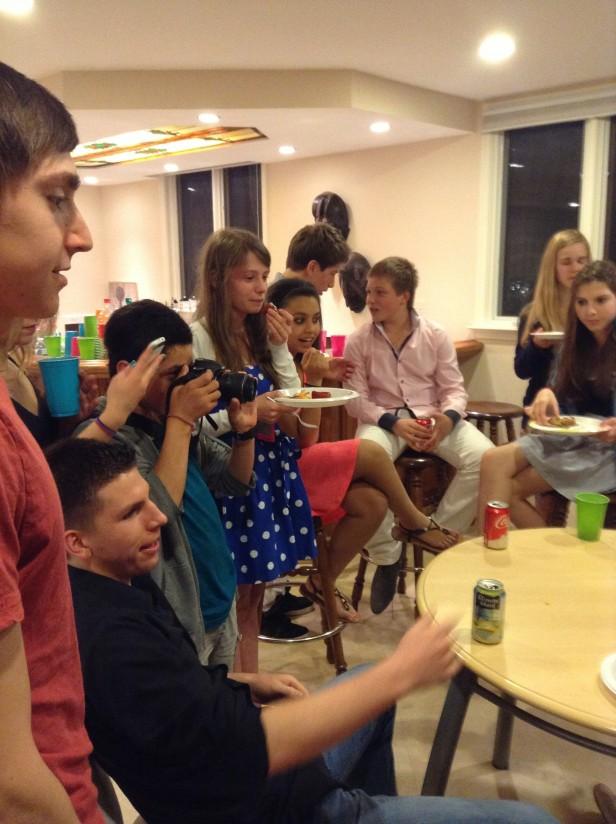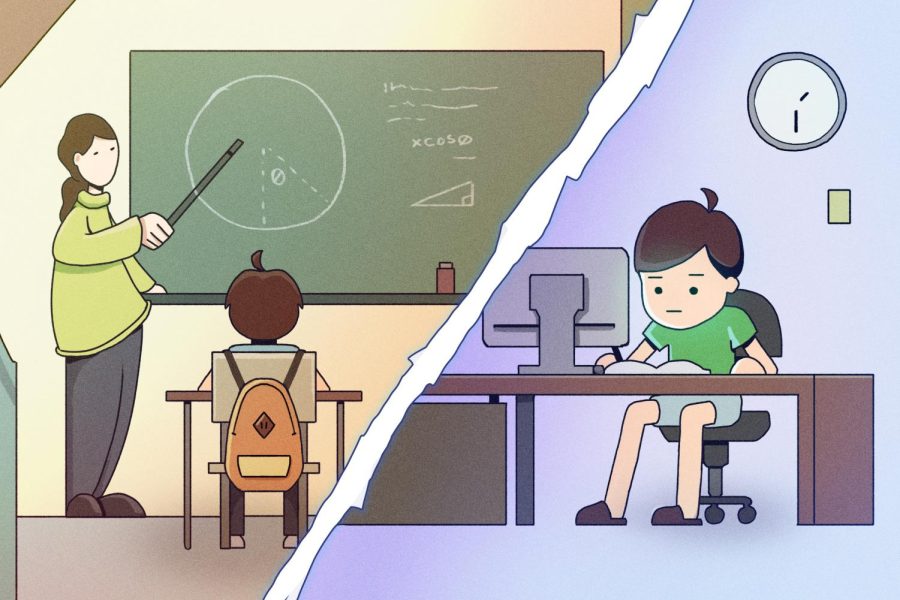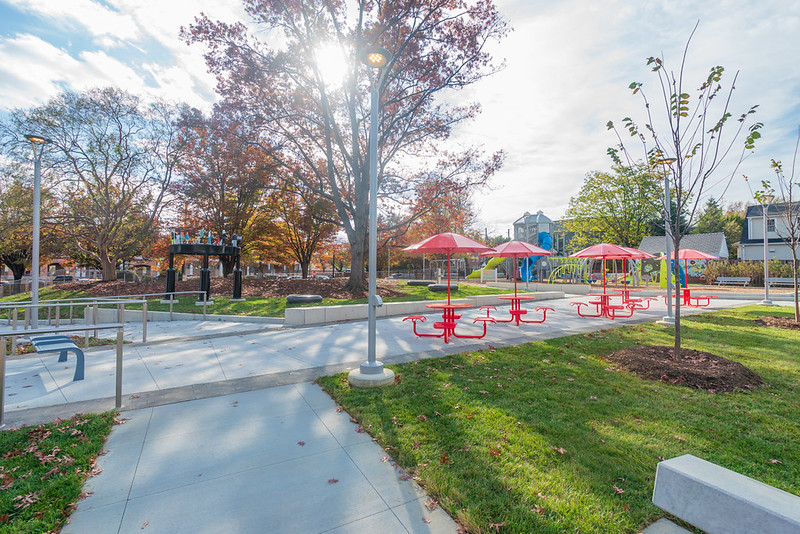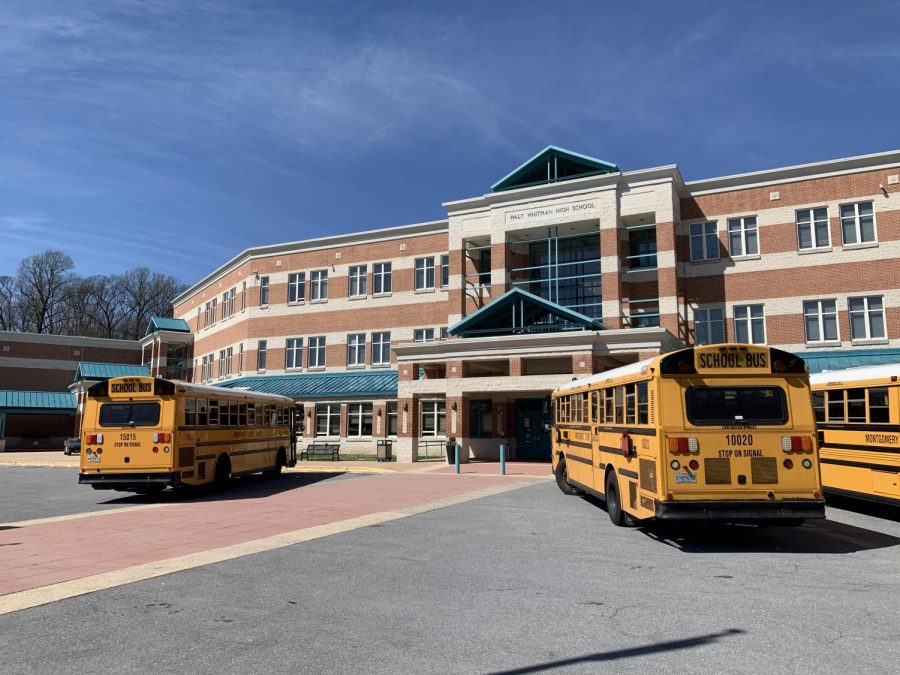Students waved American flags and colorful posters at 11 p.m. on April 24 as a white coach bus pulled in front of the parking lot. The 20 eighth-grade French exchange students and their program escorts, Claude and Sylviane Marchand, descended from the bus to find their hosts, who greeted them with kisses on both cheeks.
Students stayed with 21 Whitman and Pyle families. The homestay allowed visitors to fully experience American life not just from the outside, said American trip coordinator Steven Hancock.
With no planned group outings for the weekend, the French students spent time getting to know their host families and doing activities they had chosen.
“When I went to the baseball game with my host family, that was really great,” French exchange student Michel Frangieh said. “I also went to the Redskins store.”
Seventh-grader Ethan Collett and his dad ran a 5k with Collett’s student, Henry Bignon. Sophomore Saveena Suri’s family took their student, Constance de Bearn, to the University of Maryland for Maryland Day and also spent time with their neighbors.
Students also explored Washington, D.C., Bethesda and Baltimore on trips that Hancock and the Marchands organized. Some of the French students said their favorite activities were visiting the capital and shopping at Montgomery Mall, where a number of students purchased clothing from Abercrombie and Fitch and snapback caps supporting American sports teams.
The exchange students agreed that the biggest difference between French and American culture is the school system. French student Hend Namet said that she was shocked by the size of Whitman and the freedom that students have inside the classroom.
“It is a very big school,” Namet said. “In my school we can’t even stand up to go to the toilet.” The French students also can’t eat during class, bring their own lunch or use their phones during the day—and they wear uniforms. They start school at eight a.m. and finish at six p.m, with an hour-and-45-minute lunch break in the middle.
Language is another major difference between French and American culture. The program tested the communication skills of both the French and the American students. Host families said communication was challenging at times, but they ultimately managed to get the message across.
Junior Libby Collett found the experience especially beneficial because Bignon helped her learn material for her French test. Many host students said they thought their French skills improved in the end.
On May 2, the French students departed with tears in their eyes. They hugged their hosts and made plans to keep in touch via e-mail, Skype and Facebook. Some hosts made bigger plans to stay connected with their exchange students.
“We hope to go to Paris,” host parent Nancy Rhodes said.









